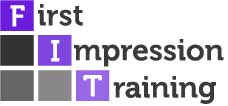As you may know, the month of March is Women’s History Month and last Friday marked one of THE most special of March days this year, with International Women’s Day, which has been observed and celebrated as a special day for women across the globe, for more than a century.
AND with Mother’s Day in the UK being marked yesterday (arguably THE most important of all days in Women’s History Month), there’s a lot to honour in terms of ALL the inspiring women in our lives during this month of March – and it’s an important annual celebration that helps us reflect on the challenges facing gender rights and highlights the stories of inspiring women through the ages.
The month-long event is recognised by businesses, governments and local groups worldwide, giving people a vital glimpse into women’s stories throughout history and while the celebrations have a long tradition, there’s still a long road ahead before equality is reached around the globe.
Every Women’s History Month is assigned a theme that underlines the topics covered in the celebration – and this year’s theme is ‘Women Who Advocate for Equity, Diversity and Inclusion’ with International Women’s Day having sported the theme of ‘Invest in Women: Accelerate Progress’ on Friday, aimed at tackling economic disempowerment among women.
Each year, women are encouraged to celebrate their achievements while reflecting on the successes of those who came before them, from Emmeline Pankhurst to Rosa Parks, a number of important women from history are commemorated during this month, as well as emerging figures in the female rights and gender equality space.
Women in Business Today
So what has (and is) changing among women in business today?
Back in 1984, there were 646,000 self-employed women in the UK.
In 2020, that number has more than doubled to 1.6 million (a 76% increase from 20 years ago!)
In the same period, the number of self-employed men increased by 47%, from 2.05 million to 3.02 million.
Around 6% of UK business women run their own businesses, a poorly rated statistic when compared to 15% and 11% in Canada and the US, respectively.
A new report from the Federation of Small Businesses (FSB), ‘Supporting Women’s Enterprise in the UK: The Economic Case’, shows that women-owned businesses are now calculated to contribute an astounding £105bn to the UK economy, an increase of 40 per cent since its last report.
In 2023, there were around 2.76 million self-employed men, and approximately 1.55 million self-employed women in the United Kingdom. In the UK, the sectors with the most women in employment are health and social work (accounting for 21% of all jobs held by women as of Sep 2022), the wholesale and retail trade (13%) and education (12%). In the health and social work sector, 77% of jobs are held by women, and in education it is 70%.
The UK may be the start-up capital of Europe, but certainly not when it comes to women. Despite a sharp increase in female self-employment in the decade prior to the pandemic, the number of women starting and scaling businesses remains much lower than that of men, and women in similar economies.
So what’s holding us back? While the facts and stats vary widely, dependent on the stage of intention to start up a business &/or the length of time the business has been going, the ‘barriers’ appear to be the same for women – access to funding and networks; primary care responsibilities; sector-specific issues and (a lack of) skills.
A fascinating story is emerging around women in business today, best detailed on the Prowess website – an organisation providing resources, support and inspiration, set up to “Help Women in Business to Flourish”. They talk about the different ways of defining women in business and list 4 main ways women involved in entrepreneurial activity are defined by the main datasets:
Self-employed women
· Around 10% of women are self-employed compared with 16% of men, although the share of all self-employed workers who are women has increased over the past decade.
· Women comprised 37% of all self-employed workers at the end of 2022, up from 27% in 2007.
· Over the pandemic, the number of female employees increased while self-employment fell. Between early 2020 and late 2022, 110,000 more women were working as employees, while the number of self-employed women fell by 119,000 over the same period, according to the Office for National Statistics (ONS) 2023 report.
· Just over half of self-employed women are professional freelancers and women are well represented in freelancing, comprising 42% of the group, according to IPSE 2020 report.
Female entrepreneurs
· In 2022, women in the UK established over 150,000 new companies – more than twice as many as in 2018, ref. Rose Review Progress Report 2023.
· The report also cited that 20.5% of all new company incorporations in 2022 were all-female led, up from 16% in 2018.
· 1 in 10 working women in the UK is involved in “start-up entrepreneurial activity”, as defined by the Global Entrepreneurship Monitor.
· Only 1 in 3 UK entrepreneurs is female, according to Rose Review of Female Entrepreneurship, HM Treasury 2019 – a gender gap equivalent to 1.1 million missing businesses.
Female-led small and medium enterprises (SMEs)
· In 2021, 19% of small and medium-sized enterprise (SME) employers were led by women i.e. they were either led by one woman or by a management team that is majority female – a similar figure to the 2015 report. This is a 3% point increase on the 2020 figure of 16%.
· The proportion of SMEs with no employees that were owned or led by women was higher, at 20% in 2021, around the same as in 2020, according to the Department for Business & Trade (DBT)
· Looking at women-led SMEs with employees, these businesses were most likely to be in education (44%), health (37%), arts and entertainment (31%), other services (30%) and accommodation and food (29%) sectors. ‘Other’ includes personal services such as hairdressing and beauty, reports the DBT.
· UK Women’s businesses have a higher churn rate i.e. more start-ups and closures, although women are less likely to attribute closure to ‘business failure’ and more likely to cite ‘personal reasons’ – which peak at age 25-34 for women, according to the RBS Group Report: Women in Enterprise: A Different Perspective.
Women on Boards
· 39.6% of FTSE 100 directorships and 38.9% of FTSE 250 directorships are held by women. (Cranfield University 2022).
· There has been a massive increase in the number of female directors in top companies since a government-backed target of 25% female representation was set in 2015.
The Economic Case for Women’s Enterprise
What’s both encouraging and disappointing to read in the Rose Review of Female Entreprenuership report 2019, is that there is a DEFINITE case for more women in business and female enterprise, yet is seems those so-called ‘barriers’ reported earlier are impacting the rise of #girlpower in the UK.
Up to £250 billion of new value could be added to the UK economy if women started and scaled new businesses at the same rate as UK men. Even if the UK were to achieve the same average share of women entrepreneurs as best-in-class peer countries, this would add £200 billion of new value to the UK economy!
Women in the USA are twice as likely to be entrepreneurially active as women in the UK. Yet, the entrepreneurial rates for men are roughly the same in the UK as in the US, so any significant increase in business formation will only come from encouraging more women into business, quotes Prowess.
Women also bring a diversity dividend as non-executive directors of companies – gender-balanced boards are more successful than mono-cultural boards on every measure, according to McKinsey & Co.
Increasing numbers of women are studying science, engineering and technology degrees, but over 70% drop out of careers of this nature, compared with half of men. This is a huge waste of investment, talent and opportunity, especially as the key challenges of our time (renewable energy, food security, medical advances) require diversity of technical and societal engagement.
The growth in women’s enterprise in the USA has been aided by Federal recognition of its importance and a sustained commitment to its development over a 30 year period. Although there have been remarkable policy developments in the UK over the past 5 years, it will take sustained commitment to ensure an equivalent level of development in women’s enterprise within the UK sadly ☹
Women starting up in business will tend to provide a more immediate contribution to the economy – around 1 in 5 women come into self-employment from unemployment compared with around 1 in 15 for men.
Women are less likely to BELIEVE they possess entrepreneurial skills, with only 39% of women feeling confident in their capabilities to start a business, compared to 55% of men. However, this a PERCEIVED gap in ability, rather than an actual gap in skill sets, according to the Rose Review of Female Entrepreneurship, HM Treasury 2019. And yet…. established women-owned businesses are more ambitious than their male counterparts, according to the recent Women’s Enterprise Task Force Report.
Women start businesses under-capitalised. It’s not just lower financial capitalisation, women also have lower levels of human capital (management training & experience) and social capital (effective networks & contacts). This under-capitalisation hinders women’s prospects and also their confidence in their ability to start a business. While studies often suggest female entrepreneurs are held back by risk aversion and low confidence, according to the Women in Enterprise: A Different Perspective Report by the RBS Group, it is more likely that this is not an individualised problem of self-confidence, but more an ‘informed assessment’ about how well-prepared women feel they are.
Yet all the latest research shows that, in general, women in business are more innovative, creatively driven, collaborative and forward focused than their male counterparts. They are nearly 3 times as likely to collaborate with research institutions (universities in particular) to glean future-thinking ideas and progression than male businesses (11.4% compared with 3.8%) and are more likely to have a product or service unfamiliar to the market and to have fewer competitors as a result AND are more likely than male businesses to be offering a product or service to the market that has been developed in the last year, according to the British Chambers of Commerce (BCC).
A REALLY encouraging statistic about YOUNG FEMALE ENTREPRENEURS and WOMEN IN BUSINESS is that nearly 17,500 businesses were founded in 2022, by women aged between 16 to 25 – a figure that’s more than 22 times greater than in 2018 (Rose Review Progress Report 2023).
It is amongst the 18-24 age group that individuals are most likely to think that entrepreneurship is a good career choice and that it has a high status in society (84% compared to 75% in the next age group) and indeed, this age group cite ‘entrepreneurial activity’ as being twice as high in importance than any other qualification level. So, that old adage of “catch them young, watch them grow” seems to be a perfectly fitting saying to ensure we start raising the female voice in British business and get that GIRL POWER fired up!
Like the idea of working with an award-winning, (almost – sorry David 😂) all-female team of entrepreneurs, who’ve all truly walked their talk within the CX, sales & leadership arenas?
Then get in touch and let’s explore how we girls can help you ALL show up & stand out from others in your busy field – to become that Purple Cow of your industry, WHATEVER your age or gender!
Click here to book your no-obligation discovery call: https://calendly.com/firstimpressiontraining
“And though she be but little, she is fierce.” — William Shakespeare
#womenshistorymonth #girlpower #IWD #mothersday #celebratewomen #womeninbusiness


















